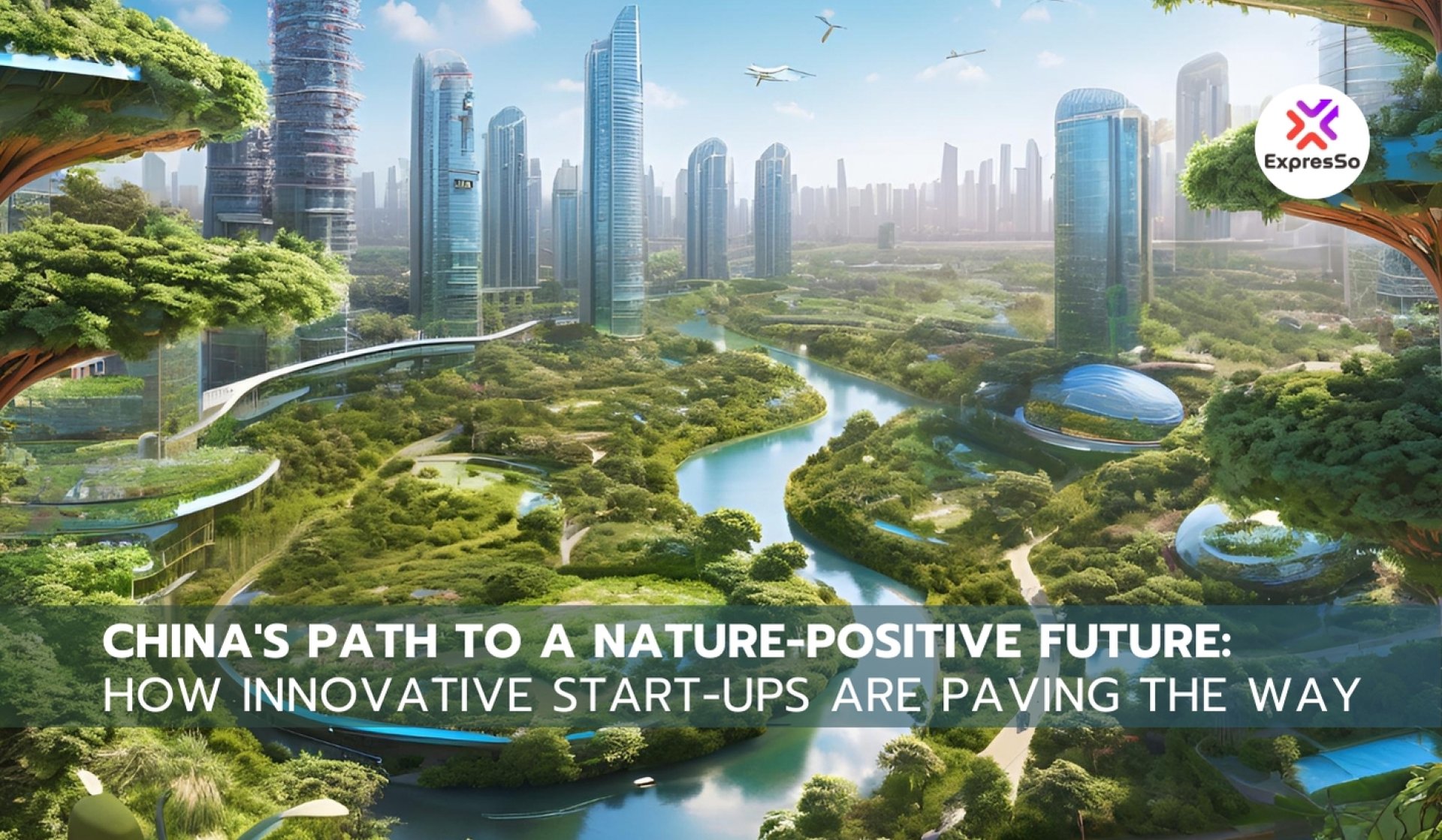China's Nature-Positive Future: Innovation by Start-Ups

As climate change and biodiversity loss escalate, China is emerging as a leader in the journey to a carbon-neutral, nature-positive economy. Known for its vast biodiversity and status as the world's second-largest economy, China is setting ambitious goals to align environmental sustainability with economic growth. By 2050, China envisions a beautiful China where humans and nature coexist harmoniously.
China's start-ups are playing a pivotal role in this mission. Supported by platforms like the World Economic Forums UpLink, these ventures are not only creating new technologies but actively working to restore ecosystems. Let's explore how they're leading the charge.
The Role of Start-Ups in China's Environmental Transformation
China's unique environmental challenges and large-scale goals demand innovative solutions. Unlike developed countries, China has less time and more complex socio-economic dynamics to address as it works toward its carbon and biodiversity targets. Here, start-ups bring agility, creativity, and commitment, providing solutions uniquely tailored to China's needs.
From AI-driven wildlife monitoring to large-scale ecosystem restoration, these start-ups are tackling core issues like biodiversity loss, pollution, and climate change. By blending advanced tech with purpose-driven efforts, these companies inspire global action.
Examples of Nature-Positive Innovations
Backed by UpLink and other initiatives, several start-ups are making strides:
- RoboticsCats: Using AI for automated wildlife monitoring and early wildfire detection, RoboticsCats helps protect biodiversity hotspots while raising awareness with real-time ecosystem images.
- Huangshan Green Anhui Conservation Centre: Through DNA tech, this center tracks wild animals in protected areas, supporting scalable conservation efforts.
- SEED Nature: Focused on endangered plants, SEED Nature collaborates with communities to create eco-tourism and environmental education opportunities, driving eco-friendly local businesses.
- ReWild Yunnan: Specializing in forest restoration, ReWild Yunnan plants local tree species to maximize ecological impact in China's most biodiverse region.
These start-ups exemplify how technological innovation can be combined with community-driven conservation for lasting impact.
How Platforms Like UpLink Empower Start-Ups
The World Economic Forums UpLink platform, along with initiatives like 1t.org, is crucial in supporting these start-ups. By connecting them to investors, partners, and organizations, UpLink amplifies their impact and reach. UpLinks Biodiversity Challenge in China has fostered ideas that promote biodiversity conservation, ecosystem restoration, and sustainable growth. In partnership with initiatives like Good to Nature, UpLink is helping these start-ups gain visibility and resources to make a lasting impact on China's environment.
Why China's Nature-Positive Goals Matter Globally
China's commitment to carbon neutrality by 2060 and significant biodiversity gains align with global goals like those in the Paris Agreement and Kunming-Montreal Global Biodiversity Framework. Rising temperatures and the acceleration of species extinction stress the need for urgent action. China's leadership in technology, paired with its focus on sustainability, offers a unique chance to set a global standard and inspire similar efforts worldwide.
The journey to a nature-positive future needs collaboration across industries, governments, NGOs, and communities. China's start-ups are demonstrating a model of innovation and ecological responsibility that can be emulated around the world.
China's progress toward carbon neutrality and biodiversity protection is a powerful example of how innovation and environmental responsibility intersect. Through UpLink and similar platforms, a new generation of ecopreneurs is taking bold steps to make China's vision a reality. As these start-ups tackle ecological challenges with fresh ideas, they're building a future where technology and sustainability advance hand-in-hand.
What do you think? How can start-ups in other countries help achieve biodiversity and climate goals?
Reference: World Economic Forum


